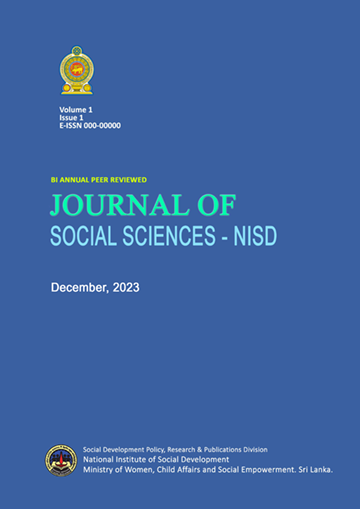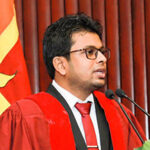The Journal of Social Sciences stands as a beacon of multidisciplinary exploration, offering a quarterly platform for the dissemination of scholarly work. Committed to openness and rigor, it operates as a peer-reviewed forum facilitating the exchange of both theoretical insights and practical innovations aimed at fostering a sustainable global community. Our publication serves as a vital conduit for independent researchers, esteemed academicians, seasoned professionals, diligent practitioners, and aspiring students alike. It provides a fertile ground for the presentation of high-caliber empirical studies and cutting-edge theoretical inquiries across various fields of inquiry.
At the nexus of academia and practice, the Journal of Social Sciences invites contributions from diverse corners of the world. We extend a warm invitation to scholars across continents to submit their scholarly endeavors, thus contributing to the collective endeavor of shaping a brighter future for generations to come. Join us in illuminating the path forward with the timeless wisdom of research, as we endeavor to construct a world of boundless possibilities.
Vision
To become a leading open-access peer-reviewed journal recognized for impactful research addressing societal issues and promoting positive social change.
Mission
Facilitate interdisciplinary collaboration and scholarly rigor, providing a platform for showcasing research, fostering constructive dialogue, and contributing to innovative solutions for global challenges. We uphold principles of open access, peer review, and academic integrity while nurturing the next generation of scholars and practitioners.
Aims and Objectives
- Facilitate Knowledge Exchange: Serve as a platform for the exchange of scholarly insights and innovative research across various disciplines within the social sciences.
- Promote Rigorous Inquiry: Foster a culture of academic rigor and intellectual curiosity by encouraging high-quality empirical studies and theoretical explorations.
- Advance Sustainable Development: Contribute to the advancement of sustainable practices and policies through research that addresses societal challenges and promotes environmental stewardship.
- Support Diversity and Inclusivity: Embrace diversity of perspectives, methodologies, and contributors, ensuring an inclusive environment for scholarly discourse and collaboration.
- Empower Emerging Scholars: Provide a supportive space for emerging scholars, including students and early-career researchers, to showcase their work and engage with established academics. Catalyze Positive Change: Inspire positive social change by disseminating research that informs policymaking, shapes public discourse, and addresses pressing issues facing communities worldwide.
Scope
- Multidisciplinary Research: Welcomes contributions from a wide range of disciplines within the social sciences, including but not limited to sociology, psychology, economics, political science, anthropology, communication studies, and geography.
- Empirical and Theoretical Studies: Encourages submissions of both empirical research, based on rigorous methodologies and data analysis, and theoretical inquiries that advance conceptual frameworks and theoretical understanding.
- Practical Applications: Highlights research with practical implications for real-world problems, including but not limited to social policy, community development, organizational management, and international relations.
- Global Perspective: Embraces research from diverse geographic regions and cultural contexts, fostering a global dialogue on issues of common concern and interest.
- Interdisciplinary Collaboration: Encourages interdisciplinary collaboration and cross-pollination of ideas, recognizing the value of integrating insights from multiple disciplines to address complex societal challenges effectively.
Publication Frequency
Bi annually
Publication Ethics
- The journal adheres to strict publication ethics and expects authors to comply with ethical guidelines, including avoiding plagiarism, fabricating data, and engaging in any form of academic misconduct.
- Authors are required to disclose any conflicts of interest that may influence their research or its interpretation.
- The journal follows COPE (Committee on Publication Ethics) guidelines and takes allegations of misconduct seriously, conducting thorough investigations when necessary.
Peer Review Process
The peer-review process of the Journal of Social Sciences is a double-blind process, in which the identities of the author and referees are both hidden, making it easier for reviewers to focus on the paper itself without being swayed by any preconceived ideas about the author or their institution. The manuscripts submitted to the EJSS will initially be pre-screened by the Editorial Board members, and if necessary, will be referred to two specialists in the relevant field. The two reviewers are experts in the relevant discipline with anonymity for both author and referee. If there is a disagreement between the reviewers, the manuscript would be sent to a third reviewer. The final decision regarding Acceptance/Rejection will be made by the Review Panel based on the comments made by the referees.
Authorship and Acknowledgments
- Authorship should be based on substantial contributions to the research design, data collection, analysis, interpretation, drafting, and revising the manuscript.
- All individuals who contributed significantly to the work should be listed as authors, while others who provided support or assistance should be acknowledged appropriately.
Data and Reproducibility
- Authors should provide sufficient detail about their methods and procedures to allow for the replication of their research.
- Raw data should be made available upon request or deposited in an appropriate repository to facilitate transparency and reproducibility.
Corrections and Retractions
- The journal is committed to correcting errors and addressing issues of concern promptly and transparently.
- Corrections, clarifications, and retractions are issued as necessary to maintain the integrity of the scholarly record.
Editorial Independence
- Editors and reviewers are expected to evaluate manuscripts based on their scholarly merit, without influence from external factors such as author reputation or institutional affiliation.
- The editorial decision-making process is transparent and free from undue influence or bias.
Open Access and Copyright
- The journal is committed to open access publishing, making research freely available to readers worldwide without subscription barriers.
- Authors retain copyright of their work and grant the journal a license to publish and distribute the manuscript.
Click “Author Guidelines” for all the information you need to prepare your manuscript.
(This option combines clarity with a benefit for the author).
Leatest version

articles
| Content |
| Diversity of use of ethnobotonical knowledge of endemic/native culinary plants resources in Sri Lanka: R. K Withanachchi / O.T.D Silva / Y.D Jayathileke |
| A sociological study of how women are socially victimized on the basis of gender discrimination through; The Stoning of Soraya M. movie : R.M.V.S Rathnayake |
| A study of music education in Buddhist monasteries of Sri Lanka in the context of Viyayatana Pirivenas : Y.K Udaya Bandara Yatiwella |
| Effects of English as the Medium of Instruction on Science Learning and Teaching – A study in the secondary schools in Northern Province: S. Patrick Gerard/S. Shanmugathasan/ A. Sathiaseelan/ T. Kalamany |
| A Study of “Kavadi” Dance Performance in Devinuwara Perahera Ceremony and its Modern Trends and Dynamics: Lakmini Gamage / H.K. Pabasara |
| ලාංකේය ජන රංග කලාව සමාජ කාර්යය හා තදානුබද්ධව විකාශනය වීම පිළිබඳ විමසුමක් : එස්.ඒ.ගයත්රී කාවින්ද්යා |
| පුරාතන ශ්රී ලාංකේය ඉතිහාසකරණ සම්ප්රදායෙහි ආරම්භය සහ අනුක්රමික වර්ධනය : එස්.ඩබ්. සුපුන් ගයාන් විජේරත්න / පී.ඩබ්. පියුමි හංසිකා සමරනායක |
| சமூக,பொருளாதார நிலைமைகளில் இளவயது திருமணங்கள் ஏற்படுத்தும் தாக்கங்கள்- மாவடிவேம்பு 01 கிராசேவகர் பிரிவை மையப்படுத்திய சமூகவியல் ஆய்வு: ராஜேந்திரன் கிருஷிகா |
| முகநூலில் பெண்களுக்கு எதிரான இணையவழி வன்மறைகள் யாழ்ப்பாண பல்கலைக்கழக மாணவர்களை அடிப்படையாகக்கொண்ட ஆய்வு: கிசோபனா சுந்தரலிங்கம் / கீர்த்திகா சுந்தரலிங்கம் |
| யாழ்ப்பாணம் மற்றும் முல்லைத்தீவுப் பிரதேசப் பாடசலை கட்டிளமைப் பருவ மாணவர்களிடையேயான வனபோக்கு நடத்தை ஓர் ஒப்பீட்டு உளவியல் ஆய்வு: பிரம்மியா சண்முகராஜா., கலாநிதி.க. கஜவிந்தன் |
Advisors

Dr. Raveendra Kumara
Director General (Act.)
National Institute of Social Development

Mr. M.S.M. Asmiyas
Director (Social Development Policy, Research & Publications Division)
National Institute of Social Development
editor board
S. Hariharathamotharan – 0772482236, hari@nisd.ac.lk
H.K.Sandaya Sirikumara – 0768941494, sandaya@nisd.ac.lk
B.A. Niluka Wijebandara – 0715683646, niluka@nisd.ac.lk
Chamari Thabrew – 0751822341, chamari@nisd.ac.lk
S.H. Nisansala Madushani Silva – 0741640138, nissansala@nisd.ac.lk
